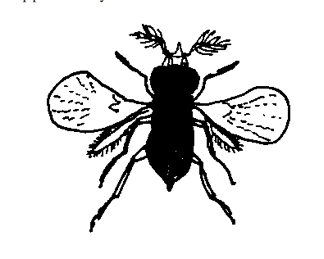Research in the Smith lab is focused on ecological aspects of 'top-down' natural enemies attacking forest insects (invertebrate and vertebrate), and includes parasitoid fitness, field population dynamics, and non-target risk assessment. Early work exploring inundative releases of egg parasitoids (Trichogramma spp.) against major forest insect defoliators is internationally recognized, although current studies also examine 'bottom-up' effects of forest management practices on insect biodiversity, food webs, and guild functioning.
Mechanisms driving species invasions in Canada's forests has been of primary interest in recent years, with studies investigating shifts in community structure and novel associations following the arrival of new species. The lab works closely with collaborators at the Canadian Forest Service, Ontario Ministry of Natural Resources and Forestry, Agriculture Canada, and international agencies (CABI-Switzerland, USDA-European Biocontrol Lab-France) on problems of direct relevance to both the forest and pest control industries. Our over-arching goal is to provide environmentally friendly biocontrol options for the increasing number of forest pests while also sustaining biodiversity for long-term forest sustainability.
Mechanisms driving species invasions in Canada's forests has been of primary interest in recent years, with studies investigating shifts in community structure and novel associations following the arrival of new species. The lab works closely with collaborators at the Canadian Forest Service, Ontario Ministry of Natural Resources and Forestry, Agriculture Canada, and international agencies (CABI-Switzerland, USDA-European Biocontrol Lab-France) on problems of direct relevance to both the forest and pest control industries. Our over-arching goal is to provide environmentally friendly biocontrol options for the increasing number of forest pests while also sustaining biodiversity for long-term forest sustainability.
